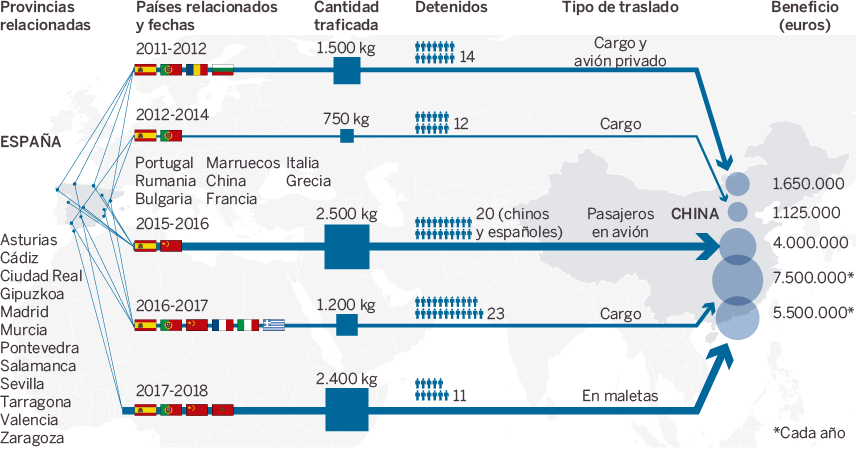First conviction in Spain for elver smugglers
The first conviction for trafficking this juvenile to Asia imposes 1.5 million fine and six years in prison
Original article by Manuel Planelles published ElPais
The first major operation carried out in Spain against the smuggling of European eels – the fry of the eel, a species that is endangered and whose export outside the European Union is prohibited since 2010 – has resulted in fines of more than 1 . 5 million euros for the five involved in this case and three of their companies. In addition, these five people have been sentenced in total to more than six years in prison for the crimes of smuggling of endangered species in a tentative and false public document for trying to transport between 2011 and 2012 live eels to Asia.
In January 2011, when this framework tried for the first time to remove the eels, the traffic of this species was something exotic of which there were hardly any references . Now, half of the EU countries are involved in the fight against this profitable contraband that decimates the populations of Anguilla anguilla. And the war against this illicit trafficking has become an “icon” of the fight against organized crime in Europe. “It’s European ivory,” sums up Lieutenant José Antonio Alfaro, a Europol environmental crime specialist who is in charge of coordinating the eel trafficking. In China, which absorbs the bulk of this illicit market, the European eel is highly valued, and the native eel is in decline.

Major Police Operations Against Glass Eel Trafficking
